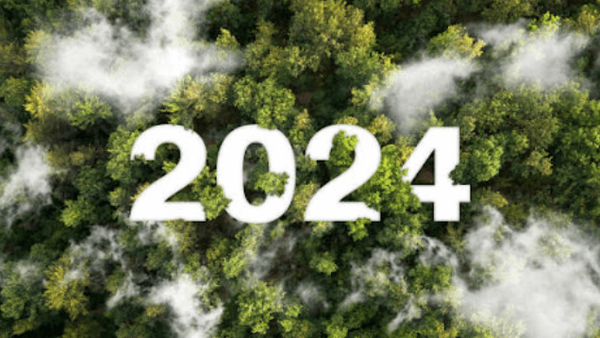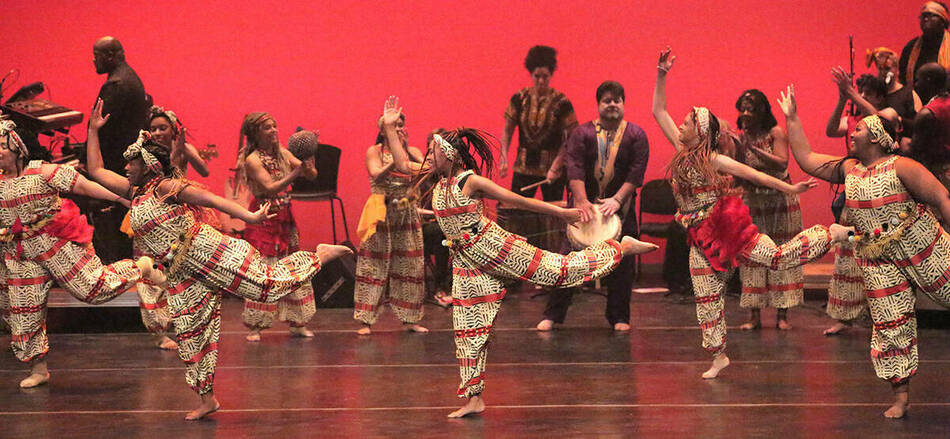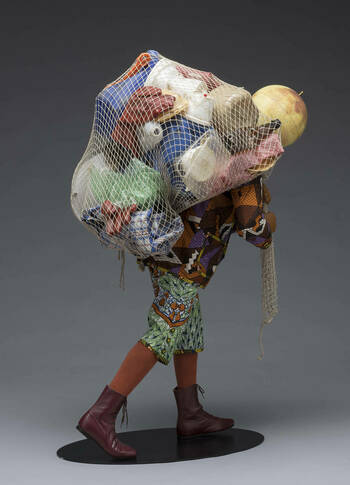Notre Dame International encourages global citizenship as a 2024 New Year’s resolution

The Key? Cultivating a sense of openness and curiosity—both abroad and on campus
At New Year’s, Brazilians may head to the beach at midnight and jump seven waves while making seven wishes—each jump representing a request to an ancient deity.
In a tradition rooted in mythology around the Roman god Janus, usually depicted with two faces—one looking backwards and the other forward, Italians make buoni propositi, or “good intentions,” at the start of a new year.
And here on the Notre Dame campus, believing in the power of wishes, intentions, and resolutions to crystallize the yearning we have to “be better” in the new year, Notre Dame International (NDI) offers one possibility to the Notre Dame community: Resolve, in 2024, to be a better global citizen—with a focus on possibilities right here on our own campus.
Curiosity is the key attribute at the heart of global citizenship
NDI thrives on sending students, faculty, and administrators around the world to learn, to research, and to collaborate.
But NDI also sees the reverse of that process as the equal, twin component of its goal to strengthen global education overall at Notre Dame. The intellectual engagement is both a part of NDI’s academic objective and central to our responsibility as a Catholic research university.
How does each of us best participate in, and succeed at, that mission?
“By being constantly curious about the world and cultures around us,” answers Leah Zimmer executive director, international student and scholar affairs. “Curiosity is at the very heart of global citizenship. It is curiosity that propels knowledge and understanding, and reflection on that learning that allows us to be more thoughtful, more creative in our thinking and being in the world. ”
In her role at NDI, Zimmer works to make campus learning and life a shared experience for international and American students.
“We all have the incredible opportunity to learn, right here, from students and scholars around the world,” she says. “Naturally, at times our reluctance to go beyond the superficial and engage with each other can spring from a fear of appearing uninformed—about geography, history, culture, or cultural mores.”
Yet, she continues, “How can we turn the fear of ‘not knowing’ into a learning opportunity? How do we reach out effectively and respectfully to our fellow human beings? First, by being curious; second, by being reflective about what we have learned or experienced as a result of that curiosity.”
Much of the “work” of global citizenship depends on attitude, adds Zana Karabatak, associate director, international student and scholar affairs.
“We are all constantly building our global citizenship competencies,” she says. “One is never ‘done’ with that effort. Nor should building global citizenship skills be considered a ‘check the box’ activity. There is so much joy and excitement to be had in learning about a new culture, in actively seeking out experiences that enrich us and show us what the world has to offer.”
In the new year, attend events, performances, and art exhibitions
In January, cultivate global citizenship by attending UZIMA! Drum and Dance at the DeBartolo Performing Arts Center and exhibits at the new Raclin Murphy Museum of Art.
Among the extraordinary qualities of art is its capacity to bridge cultures and to evoke deep emotion and reflection. That makes attending the performance of UZIMA! Drum and Dance on January 20th at the DeBartolo Performing Arts Center, 7:30 pm. an excellent way to launch a year of global citizenship.
 The January 20th performance is titled: ASHE: A Celebration of Voices.”
The January 20th performance is titled: ASHE: A Celebration of Voices.”Since 2012, UZIMA! has performed traditional West African dance, Afro-contemporary, song, and spoken word in the South Bend community. The company features a diverse collection of members—from young to more mature, and of all different races and backgrounds.
“Unity through diversity is at UZIMA!’s core,” says Kelly Burgét, the group’s founder and artistic director. “We seek to bring people of all backgrounds together through the arts.”
Presented as part of the University’s ninth annual Walk the Walk Week, Burgét explains that “ASHE or ASE—pronounced ‘Ashay’—is a practical word in the language of the Yoruba people of West Africa. Often translated as ‘So let it be,’ it has connotations of omnipresence or immediacy.”
The program is a unique collaboration between UZIMA! and several choirs, groups, and individuals from campus and South Bend.
In addition to dancers and drummers, the performance will include a short film featuring 50 campus and South Bend leaders and activists answering the question: “What is your dream or vision for our community?”
As for reflection after the performance, Burgét says that she hopes people leave with an understanding of the importance of living with intentionality every day.
“Our words matter,” she says. “They can uplift another, or, conversely, we can bear the fruits of careless words.”
In partnership with UZIMA!, educators at the new Raclin Murphy Museum of Art have developed an interactive experience for audience members at the January 20th performance.
As people enter the lobby of the DeBartolo Performing Arts Center, they will be asked to write their dream for our community on a wooden tulip tree (Indiana’s state tree) leaf, which will then be added to one of three sculptural trees on view in the lobby. Following the performance, people will be asked to select a leaf from the tree to take with them.
 Earth Boy, Raclin Murphy Museum of Art
Earth Boy, Raclin Murphy Museum of Art“The idea,” explains Sarah Martin, curator of education, public programs, at the Raclin Murphy Museum of Art, “is that one comes with a dream for our community and departs with the dream of another. This part of the evening is intended to make concrete the idea that we hold the dreams of others in our hands. It is only by working together and caring for each other that we can make our dreams real.”
With the UZIMA! performance as one activity on campus this January centered on global citizenship, another is exploring the new Raclin Murphy Museum of Art. Founded on the principle that art is essential to understanding individual, shared, and diverse human experiences and beliefs, the new galleries are designed and curated to encourage close looking and critical thinking. Galleries are dedicated to African Art, the Indigenous Art of the Americas, European Art through 1700, European and American Art 1700-1900, and International Modern and Contemporary Art.
Museum tours are plentiful in January. “Meet Your New Museum” hour-long tours are offered every Friday, Saturday, and Sunday throughout the next few months.
NDI offers concrete ways to cultivate curiosity & build competencies in global citizenship
To guide members of the Notre Dame community in ways to develop both curiosity and global citizenship competencies, at the beginning of every month in 2024, NDI will highlight one or more performances, lectures, exhibits, workshops, or opportunities for low-key social events on campus open to faculty, staff, and students.
NDI’s frequent partner, the Center for the Study of Languages and Cultures (CSLC), offers a myriad of events and services for anyone to start–or continue–their journey to develop global citizenship. Mark your calendars for the university’s 3rd annual “Language and Culture Week”: February 12-16.
“And, don’t let your New Year’s resolutions fall by the wayside after January,” advises Mary Davis, assistant director, CSLC. “Undergraduates can explore the Center’s Globally Engaged Citizens Program, which is open to students from any college at the University to ‘enroll’ throughout the year. Through the GEC, students build a digital portfolio that encourages meaningful reflection and rewards their intercultural curiosity and engagement throughout their studies. Graduating seniors even receive a certificate of completion and a graduation cord when they finish their portfolios!”
With the theme of curiosity at the forefront, NDI will offer a few guides to the experiences by providing a forum for an artist, performer, or lecturer to provide some insights into their creative process or the intention for the event, as well as some suggestions for reflection in the hours or days following.